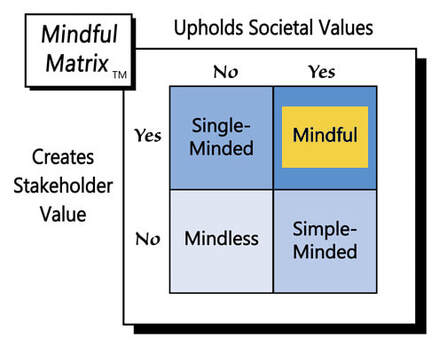and member of the men's basketball team at Messiah College
Business transactions often culminate with the exchange of need-satisfying products, but they begin with more basic exchanges of time, questions, answers, and ideas. Driving the process is one critical activity—listening: offering one’s ears along with a genuine desire to understand.
Just as listening sustains good marketing, listening is the first step toward racial reconciliation.
Thich Nhat Hanh, a Vietnamese peace activist once said, “In order to reconcile, you have to possess the art of deep listening.” Following the tragic murder of George Floyd, the world, specifically the black community, was outraged. The reason was not necessarily that we were shocked it had happened because, quite frankly, there has been a plethora of deaths of unarmed black men and women throughout the years, many a result of police brutality. The uproar, protests and rioting were infused with so much force and rage because for years we had been trying to call attention not just to police brutality but to other racial injustices, but we were never really heard. Very few would listen.
The nation’s collective failure to listen to the voices of those crying out about racism has allowed many senseless events, like the killing of Floyd, to happen time and time again. Martin Luther King Jr. predicted what happens when injustice meets apathy when he said, “A riot is the language of the unheard.” While I in no way support rioting or looting, it is important to note that such actions typically don’t happen when people feel like they’re being heard—when others are listening.
No competent marketers ignore the needs of their consumers. No country should ignore the needs of its citizens, particularly those crying out about racial injustices. Both fail to create mutual value. Businesses have a unique opportunity to hear the voices of the black community and others crying out for change by having open and honest conversations with their employees, customers, and other stakeholders. Large and small companies are in prime positions to break down the racial barriers they once avoided by genuinely listening.
As important as listening is to marketing and racial reconciliation, it only gets you in the room. Action is what allows you to stay there.
People say, “be the change you want to see,” but actually being the change involves effort and often uncomfortableness. If marketers want to play a role in racial reconciliation, they need to move beyond words and model what racial reconciliation looks like.
Ben & Jerry’s is a good example of such action. The company’s website displays a staff composed of many different races, from African-American, to White, to Asian, to American Indian. The firm shows the world that despite our nation’s racial and political divisions, people of all races, cultures, and ethnicities can work together to achieve a common goal. Ben & Jerry’s is not just speaking about the change that should occur. It is clear the company is intentional in hiring so it can be the change.
The firm also has introduced an ice cream flavor called “Pecan Resist,” centered on exchanging narratives of exclusiveness for inclusivity, equality, and justice for people of color. In many ways, this product represents the gold standard of what marketing should do to be the change.
Businesses wondering about the role they can play in racial reconciliation should recognize that people have largely done their part. Movements like Black Lives Matter have expressed anger and voiced concerns, upholding their role of the exchange. They’re now looking for something in return for their voice, which, again, first means others who will listen. Businesses should lead by example in lending an ear, but not stopping there.
After listening, organizations and individuals must go a step beyond and act on what they’ve learned, which is strengthened by understanding the history of racism, having uncomfortable workplace conversations, and donating to movements that advocate for racial equality and shared justice. Simply stated: They must do something. Don’t leave the exchange relationship one-sided; make it mutually-beneficial, thereby encouraging racial reconciliation and creating priceless value for generations to come.
No two companies are the same. Likewise, every business that chooses to listen and act will play a different yet important role on the road to racial reconciliation. All such actions, however, must uphold common values: fairness, honesty, and respect. Whatever their specific role, companies that facilitate mutually beneficial exchange leading to racial reconciliation create a life-giving legacy of “Mindful Marketing.”
Learn more about the Mindful Matrix and Mindful Meter.
Check out Mindful Marketing Ads and Vote your Mind!




 RSS Feed
RSS Feed